The utopian post-capitalist world we can create with AI
Today, China faces almost the same set of problems that the capitalist states are struggling with. In a post-capitalist world where an entire demographic degenerate into the "useless class", capitalism will lose the market on which it depends. EAI senior research fellow Lance Gore imagines what this could mean for the Chinese Communist Party and other advocates of the socialist path.
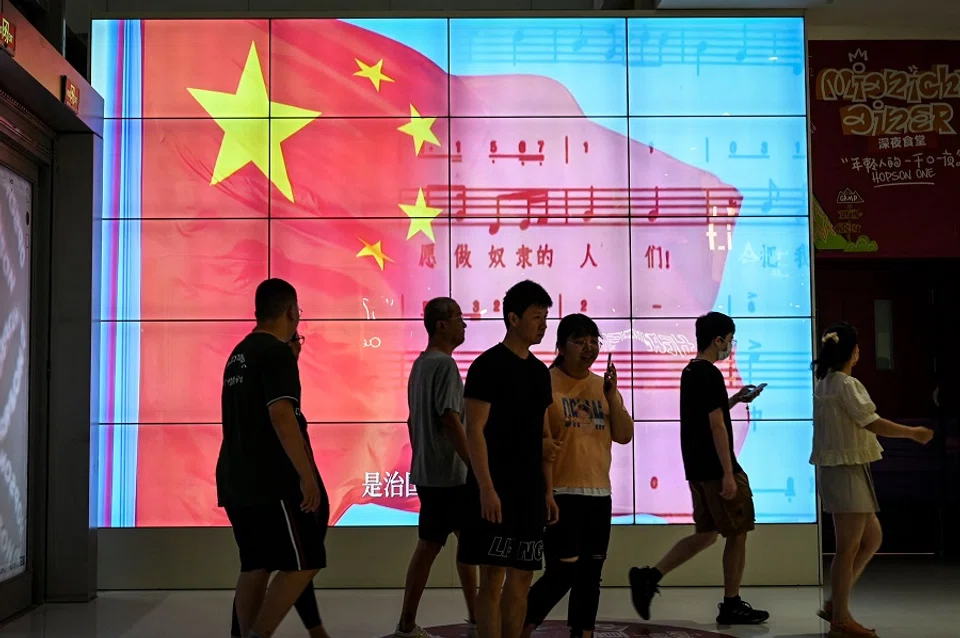
The year 2023 may be remembered by historians as the turning point in humanity's march toward post-capitalism.
However, this turning point is not due to humanity's better understanding of post-capitalism, or that the driving forces behind post-capitalism have matured and grown stronger. It is due to the unsustainability of the capitalist mode of production, and the gradual manifestation of post-capitalist productive forces. The last two factors has created the conditions for the emergence of the first two.
Even as it is being ostracised by Western countries, China currently faces almost similar problems that the capitalist states are struggling with. These include sluggish market or insufficient demand, property and stock market bubbles, mounting government debt that weakens its financial clout, inflation caused by prolonged "quantitative easing" (although for China, the possibility of deflation à la Japan still exists, thanks to high saving rates and the streak of frugality in Chinese cultural tradition), factory shutdowns and offshoring that result in large-scale unemployment, ever-increasing stressfulness in work and life and burnout people, widespread pessimism about the future, pervasive anger and discontent in society, and so on.
Persistent poverty amid abundance of wealth
In the face of these phenomena, both China and the West face the same fundamental contradiction of capitalism. Even though the economy is perfectly capable of meeting the basic material needs of everyone as far as production capacity is concerned, a huge part of the population struggles to make ends meet, and "excessive capacity" has to be eliminated, sending even more people into destitution.
To put it simply, there is persistent poverty amid a great abundance of material wealth. Such poverty continues to grow in the developed capitalist nations. China will face the same problem sooner or later if it stays on the present course.

These are old problems, problems to which capitalism can provide no solutions.
The history after Karl Marx has shown that, despite the suffering and struggles of the common folk, capitalism could possibly go on forever without setting off a proletarian revolution - indeed, the general standards of material life may keep improving. But the outlines of new productive forces, marked by the wave of innovation triggered by ChatGPT, are also becoming clearer in 2023, invoking the question of the transition to post-capitalism.
Artificial intelligence may eventually rise above humanity to become the new master, which would even threaten the very existence of humans.
The rise of AI
The new technological revolution represented by artificial intelligence is setting in motion a new industrial revolution and stimulating the birth of a new form of society. These are "new" in multiple senses of the word.
The old industrial revolution let machines take over human manual labour and more and more of our mental labour. The new technological revolution, however, while constantly replacing more and more creative labour, is also remaking human beings, turning us into gods in the traditional sense.
But it does not stop there. Artificial intelligence may eventually rise above humanity to become the new master, which would even threaten the very existence of humans.
The birth of a new form of society
The new technological revolution is threatening the capitalist mode of production in fundamental ways. Firstly, it terminates the role of labour as the main source of value, since the products and services of the new economy do not require a large number of labourers. This is a death blow to labour, which is losing not only its bargaining chips but also its qualification at the bargaining table.
Secondly, as entire demographics degenerate into the "useless class", capitalism will also lose the market on which it depends for survival and expansion, so that it will have to find post-capitalist solutions.
Thirdly, the concentration of production in the hands of a very small intellectual elite will lead to a concentration of wealth in their favour. Such a pattern of wealth distribution would render the traditional capitalist mode of production unsustainable and force the transition to a post-capitalist form of distribution under popular political pressure.
...the content and extent of what constitutes work that satisfies such [basic human] need will undergo a sea change.
Fourthly, a new technology commonly has a very large positive spillover effect. Spillovers have the potential to replace profits as the main purpose of production, leading to the obsolescence of the capitalist property rights system and the establishment of post-capitalist property relations.
Lastly, while work is a basic human need, the content and extent of what constitutes work that satisfies such need will undergo a sea change. They will go far beyond the confines of the job market, and lead to the birth of a new form of society.
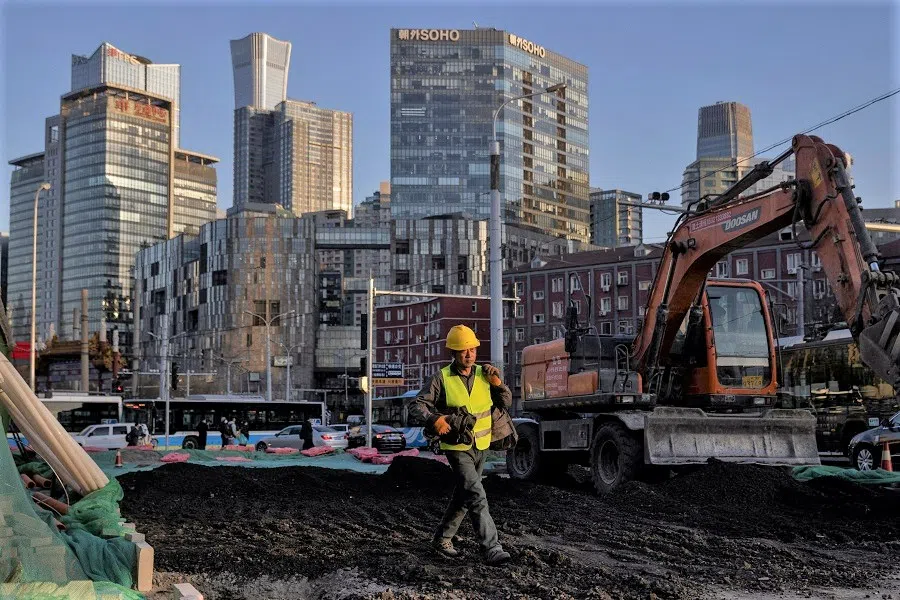
Post-capitalism looks inevitable, but exploring the ways to achieve it will be a long and difficult process. For the Chinese Communist Party (CCP) and other advocates of the socialist path, we can at least point out the following areas to expand our imagination.
The capitalist market that defies human nature
For over 99% of human history, we have lived in small, primitive, ethnic societies in which mutually beneficial exchanges between members arise naturally. The instincts for such exchanges can also be observed in chimps, gorillas and other social animals. Market exchanges develop on this basis as a complement to the natural economy. They occur across the greater community or even between strangers, but are still in line with human nature.
What capitalism does, however, is to reify the laws of the market and promote them in every aspect of life, causing traditional societies, communities, tribes, clans and families to fall apart, sending everyone to drift and struggle on their own in the great tides of the market. That certainly goes against human nature. To overcome such alienation and return to the natural state of humans is the first principle of socialism.
The market is essentially a data processor, a computer so to speak. It processes various inputs - the quantities, varieties, forms and inclinations of the demands generated by every individual and collective entity, as well as the capacities, varieties, forms and characteristics of their production.
Price symbols and mathematical formulas are derived accordingly to guide the economic behaviour of market players. All sorts of mathematical models are established by neoclassical economists and econometrists to express and predict the overall effects of the separate decisions made by these economic subjects.
... the development of AI could end people's reliance on the crude computer that is the market to orchestrate production, thus bringing our economic behaviour back to an intuitive and humanised outlook.
AI replacing market for the crude computer
Economics is hailed as the crown jewel of the social sciences, not because it describes reality or predicts the future more successfully, but because it makes use of mathematics copiously, such that it looks more "scientific". But why is it able to apply mathematics copiously? Mainly because it grossly simplifies or even paints a distorted picture of human behaviour with the parameter of market prices, and invents the new species "Homo economicus".
It is only now that we have the emerging discipline of behavioural economics, which attempts to restore some features of human nature and culture that have been sacrificed by mathematical modeling, allowing economics to draw closer to reality.
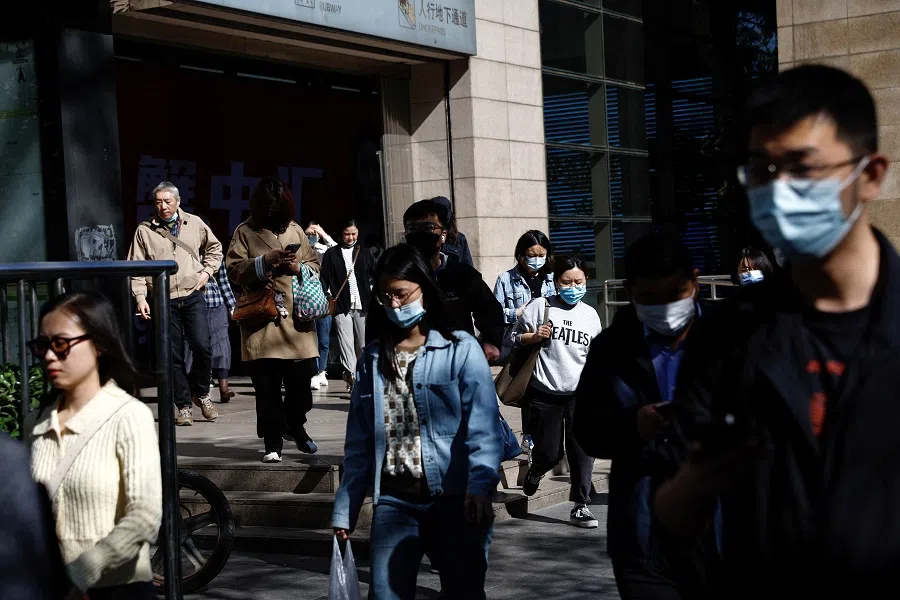
In any case, the development of AI could end people's reliance on the crude computer that is the market to orchestrate production, thus bringing our economic behaviour back to an intuitive and humanised outlook. This is good news for socialism, because it will dethrone the market as the sole determiner of value, re-diversify value validation, and thereby eliminate a major source of alienation.
The CCP affirms the "decisive role of the market in resource allocation" because the market has been proven more effective than any other ways of resource allocation in the past. Even so, it is possible for AI to come up with a more superior way of resource allocation than the market.
While the market will still be a part of economic life, it will consequently abdicate, so to speak. It will no longer sit on the throne playing the "decisive role". When that happens, Western neoclassical economics and the ideology of liberalism that comes with it will depreciate.
People get a picture of doom and gloom when they reckon in financial terms, but the outlook is completely different when looking at the productive capacity of the economy under the prevailing technology.
Getting the real economy to serve society
The detachment of the financial economy from the real economy is one feature of contemporary capitalism that has drawn wide criticism. The madness of the former economy leads to the recession of the latter, and this is bound to recur periodically. This has become so much of a fixed pattern that it is factored into our expectations of the future.
The debt problem is really a result of the financial economy's operations, with no necessary links to the real economy. Practically every household finds itself reeling when it balances its own books, even though society's total production capacity far exceeds the total demand (inclusive not only of the effective market demand).
Inadequate market demand causes the closing down of a huge number of factories and leaves a great deal of farmland uncultivated. In fact, large subsidies are paid out in many developed countries to make farmers produce less or even cease production altogether.
People get a picture of doom and gloom when they reckon in financial terms, but the outlook is completely different when looking at the productive capacity of the economy under the prevailing technology. With such productive prowess, the elimination of absolute poverty is really nothing miraculous. Poverty is more of a political and social issue, rather than an economic issue.
To free the real economy from the fetters of the financial economy is an essential point for socialism, as well as the touchstone that distinguishes socialism from capitalism.
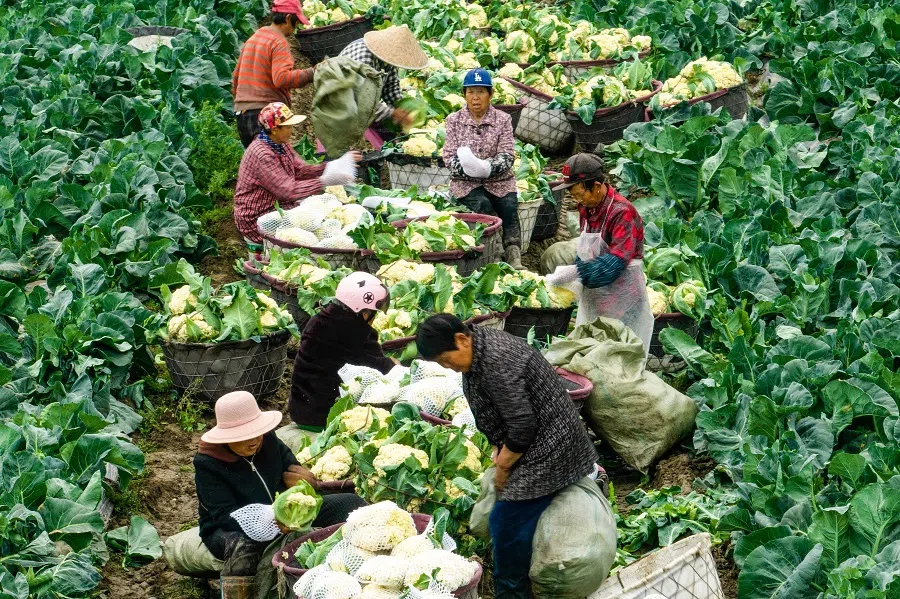
Redefining work and its meaning
One of the paradoxes of the capitalist market economy is the mismatching of talents. Just look around you. How many people are there who have no interest in their jobs, or are too stressed out and deem their work unworthy of their effort? How many desire to live a different kind of life, to embark on their own enterprises to realise life's true value, and yet are tied down by the demands of making a living and supporting their families? They have no choice but to carry on with their hardship.
The market thus misallocates human resources, a consequence of people being enslaved by the capitalist mode of production.
People argue about whether priority should be given to growing the pie or dividing it better. The sticking point comes from the fact that the two are inseparable parts of the same process. The pie-makers naturally own the pie they make. They would not want to make the pie if they are denied ownership.
China's state ownership before the reform and opening up era had sought to separate making and dividing of the pie. As everything produced by the state-owned enterprises was taken away by the State for consolidation and distribution, the producers had little motivation to produce more and productivity languished as a result.
People clambered over one another to fight for the only piece of pie there was, small as it was. And those in power naturally enjoyed an advantage and fattened themselves, whereas the masses were kept bobbing on the poverty line over the long term. People thus came to the conclusion that capitalism is the ironclad law that can never be circumvented.
As most people no longer have jobs in the traditional sense, they will scramble for voluntary work with no material remuneration, all because such work makes their life fulfilling and meaningful.
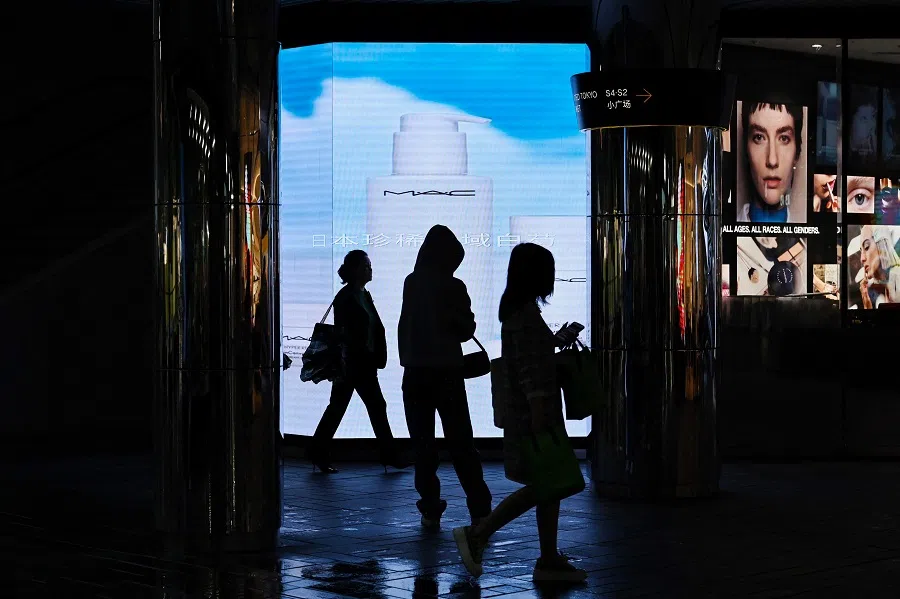
However, an alternative situation may unfold in the age of artificial intelligence. As most people no longer have jobs in the traditional sense, they will scramble for voluntary work with no material remuneration, all because such work makes their life fulfilling and meaningful. In other words, what the post-capitalist society relies on may be a whole new system of motivations, such that people will no longer be mere parts of the capitalist machine.
Universal basic income
The precondition for realising such a future is universal basic income (UBI). Unlike social assistance, UBI is mainly meant for talented people with aspirations. These include young ones who are well-educated and yet jobless, as well as folks who already have jobs (even well-paying ones) and high social statuses, regardless of age.
With the security afforded by UBI, people can devote themselves wholeheartedly to their passions, creating material and spiritual wealth for themselves and for society. AI-boosted productivity is fully capable of providing an income to every member of society, enabling them to engage in work they enjoy and still live a decent life at the same time.
China enjoys a tremendous advantage in this regard. It has the most complete industrial system, in which almost every mature industry has the surplus production capacity to be exported. Unfortunately, the government is accustomed to keeping its accounts in monetary terms and not in terms of real material wealth - that is to say, in capitalist rather than socialist terms.
Money is the lifeblood of the economy meant to serve the real economy. If it fails to deliver the necessities of life to those who need them, we need to come up with other means to achieve that end. As a socialist country, China surely is better equipped and prepared than the capitalist nations do.
AI-boosted productivity is fully capable of providing an income to every member of society, enabling them to engage in work they enjoy and still live a decent life at the same time.

Returning to the natural state of human society
In the early days of the white colonisation of North America, occasionally there were white people who ran off to Native American tribes or were abducted by them. These outsiders found life there purely natural and in tune with human nature, so they became unwilling to return to the more "civilised" white society.
In contrast, rarely did Native Americans join white society. Even when they were taken there forcibly, and compelled to receive an education in "civilisation", which dressed them up in suits and leather shoes and made them eat their food gracefully with forks and knives, these abductees would run back to their native tribes once they got the chance to do so. Why?
Because there was no market, no money back there, no bureaucracy or legal system with tedious details. Everyone knew clearly their own status and role in the tribe, so individuals did not have to fend for themselves in market competition, putting themselves in a state of perpetual insecurity.
The so-called "communist ideal" is really about returning to the natural state of human society under the conditions of a great abundance of material wealth. The ongoing new technological revolution is giving humanity precisely such a possibility.
This article was first published in Lianhe Zaobao as "烧几个社会主义脑洞".
Related: Population decline could be a good thing for China | Can capitalists ever feel at ease in socialist China? | Why Xi Jinping's bold experiments with socialism are commendable | China needs to work towards a new socialism | Can socialist China change society's value orientation and triumph over the ills of capitalism? | Is Chinese socialism superior?





